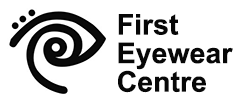Post Refractive Surgery
When do I need Post- Refractive Surgery Contact Lenses?
Refractive surgery procedures reshape cornea permanently. Sometimes, this can cause irregularities in the shape of the cornea that causes visual distortion.
The irregularities sometimes can be corrected with a follow-up laser procedure called an enhancement if the cornea is not thin. If the cornea is too thin, customised rigid gas permeable (GP) for vision improvement can be considered.
Consider post refractive surgery contact lenses if you experience these as follow:
- Halos around headlights and lamp post lightings.
- Irregular astigmatism
- Eye strain
- Headache
- Difficulty for night driving
Patients that do not achieve surgical outcome from refractive surgery like LASIK ( Laser insitu keratomileusis ) can consider customised rigid gas permeable (GP) contact lenses for vision improvement .
What is type of contact lens available for Post- Refractive Surgery?
Rigid gas permeable contact lenses maintain the shape on the eye after refractive surgery unlike regular eyeglasses and contact lenses.
Customised rigid gas permeable contact lenses may include a larger lens diameter, a design where the centre of the contact lens is significantly flatter than the periphery (called a reverse geometry contact lens design), similar to orthokeratology ( Ortho-K ) that correct myopia ( shortsightedness ) and myopia control.
Why is the rigid gas permeable contact lenses better for Post- Refractive Surgery?
Rigid gas permeable contact lenses have significant vision improvement because the space between the cornea and the back surface of a rigid gas permeable contact lens is filled with tears. The tears cover irregular surface of the cornea that causes visual distortion.
The smooth front surface of the rigid gas permeable contact lens then optically replaces the irregular surface of cornea, eliminating blur and visual distortion.
Why regular eye glasses cannot correct Post- Refractive Surgery cornea distortion?
Regular eye glasses can correct only the basic refractive errors: shortsightedness (myopia), longsightedness ( hyperopia ) and astigmatism, not on irregular cornea.
What type of test can detect Post- Refractive Surgery visual distortion?
A corneal topographer is a special computerised instrument that obtains highly accurate, point-to-point measurements of the post-surgery visual distortion.
Can I wear regular soft contact lenses for Post- Refractive Surgery visual distortion?
No. Soft contact lenses are flexible and conform to the surface of the cornea, unlike rigid gas permeable contact lens then optically replaces the irregular surface of cornea, eliminating blur and visual distortion.
